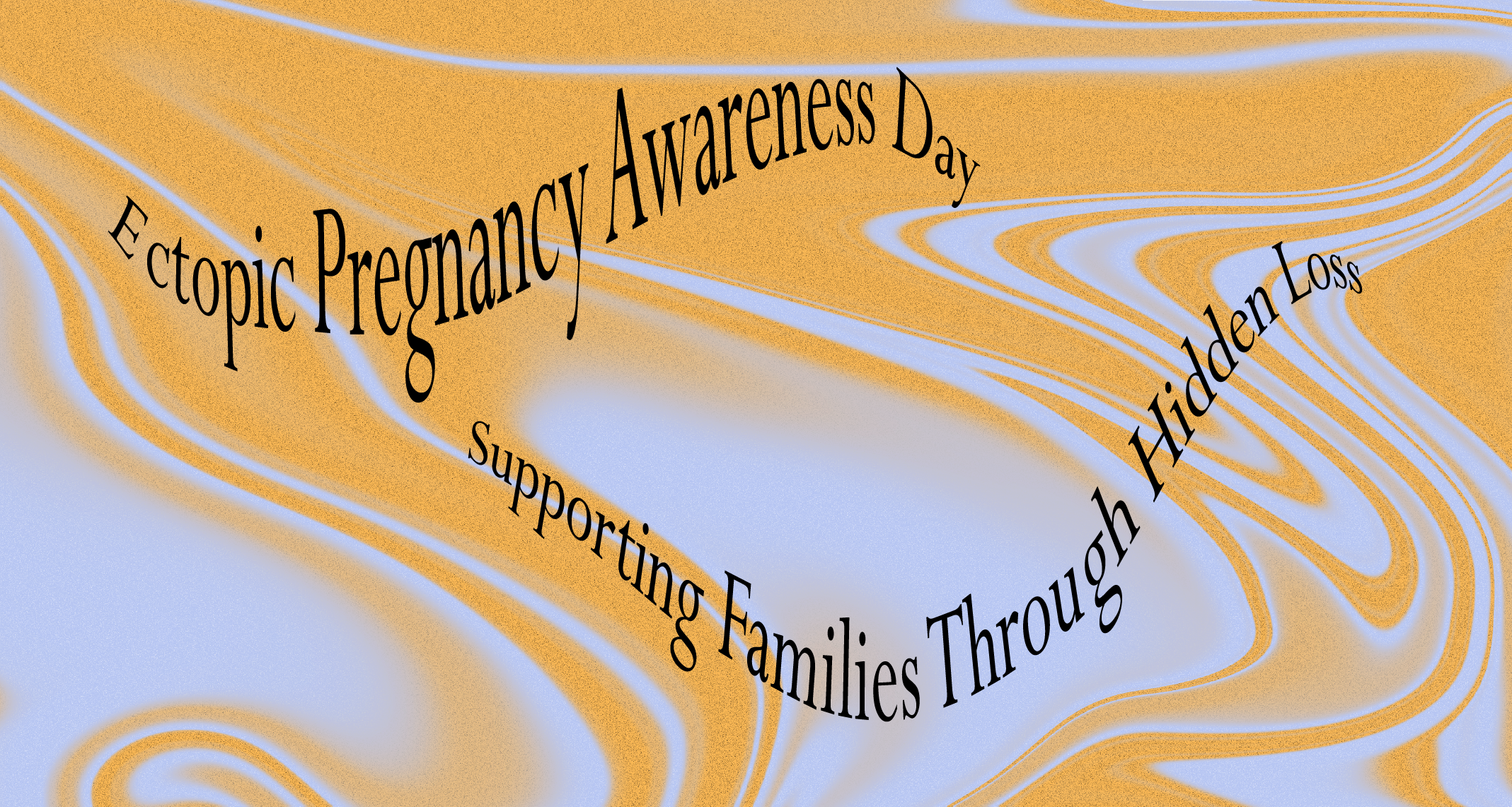
Exploring Birth as a Queer and Trans Journey: Join Our Queer Birth Workshops in London
Queer Birth Workshops is a trans-inclusive workshop series in London for queer, trans, and gender-diverse people curious about birth. Through discussions on doula support and creative, arts-based practices, participants are invited to explore birth beyond medical and cis-normative narratives. These workshops are open to anyone interested in birth now or in the future. You do not have to be pregnant to attend.

What Wunmi Mosaku’s Pregnancy Reveal Teaches Us About Ritual, Protection and Cultural Pregnancy Traditions
Wunmi Mosaku’s pregnancy reveal during the success of Sinners invites a deeper conversation about Yoruba traditions of protecting pregnancy through privacy and ritual. This blog explores why some cultures delay pregnancy announcements, how spiritual protection and ancestral care shape these practices, and how these themes connect to grief, ritual, and continuity in Sinners — through the lens of a doula.

10 Powerful Effects of Oxytocin in Pregnancy, Birth and the Postnatal Period
Oxytocin is often called the “love hormone,” but in pregnancy, birth, and the postnatal period, it plays a far deeper role. From powering contractions and reducing pain to supporting bonding, breastfeeding, and recovery, oxytocin is essential to physiological birth. In this article, we explore 10 powerful effects of oxytocin — and why creating calm, supported environments can make such a difference.

International Lesbian Day: Birth, Belonging, and the Right to Informed Choice
This International Lesbian Day, I’m highlighting the realities lesbian families face in fertility, pregnancy, and postnatal care, from limited information and exclusion in antenatal spaces to the need for inclusive, evidence-based, affirming care for every kind of family.

Boots on the Ground: Rooted in Breastfeeding Success, Grounded in Community Support
Black Breastfeeding Week 2025 celebrates the theme “Boots on the Ground: Rooted in Breastfeeding Success, Grounded in Community Support.” Discover how doulas, families, and communities create lasting impact for Black mothers and babies through support, advocacy, and care.

11 Black & brown celebrities who birthed their babies at home
There is no ‘one-type of person’ who has a homebirth.
We rarely hear stories of home birth that centre the experiences of Black and brown pregnant people so I’ve done some research to learn about some Black and brown celebrities who’ve birthed their babies at home.
It was so fascinating to see how variable the reasons were why different people chose to birth their babies at home

Portrayals of Breastfeeding in Sri Lankan Temple Art
In celebration of World Breast/Chestfeeding Week, this blog explores how breastfeeding is portrayed in Sri Lankan temple art — not just as nourishment, but as a powerful expression of love, healing, and maternal strength rooted in Buddhist stories and visual traditions.

Ectopic Pregnancy Awareness Day: Supporting Families Through Hidden Loss
Ectopic Pregnancy Awareness Day highlights a serious early pregnancy complication. Learn what to watch for, how doulas can help, and where to find support.

Kiri Amma Dana: A Blessing for Motherhood and New Life
This blog explores the ancient Sri Lankan ritual of Kiri Amma Dana—an offering to Goddess Pattini by lactating mothers to ensure safe childbirth. Rooted in both Sinhala and Tamil traditions, the ceremony marks the start of the Pattini Devale Festival with blessings, milk offerings, and deep cultural symbolism.

Reclaiming Breath & Presence: A Buddhist Reflection on World Yoga Day
On World Yoga Day, a Sri Lankan Buddhist doula reflects on the deep roots of mindfulness and breathwork in birth. This is a call to reclaim ancestral wisdom—not as wellness trends, but as sacred, embodied practices that have always belonged to us.

Cervical Screening Awareness Week: A Guide to Cervical Self-Exams
This Cervical Screening Awareness Week, discover how to take control of your health with a cervical self-exam. Whether you're navigating trauma, gender dysphoria, or just prefer privacy, this guide walks you through the process with compassion and clarity.

What is menstrual health?
Menstrual health isn’t just about periods — it’s about physical, mental, and social well-being across every stage of the cycle. This inclusive guide explores what menstrual health really means for queer, trans, and gender-diverse people — from menarche to menopause and beyond.

5 Common Misconceptions About Preeclampsia
Preeclampsia is a serious pregnancy complication that’s often misunderstood. This blog clears up 5 common myths and shares essential facts every parent-to-be should know. Whether you’re expecting, planning a pregnancy, or supporting someone who is, understanding preeclampsia could save lives.

Smoke, Spirits, and Sorrow: Black Baby Loss and Spiritual Traditions in Sinners
In Ryan Coogler’s Sinners, grief becomes a spiritual journey as Hoodoo practitioner Annie mourns the loss of her baby. Through ancestral beliefs, sacred ritual, and deep emotional truth, the film reclaims Black baby loss as a space for power, love, and spiritual connection. This blog explores the symbolism, cultural roots, and emotional resonance behind Annie and Smoke’s choices—and what it means when a baby becomes an ancestor.

Unveiling Shame in Birth: Where It Comes From and How We Begin to Heal
Shame in the birth space is more common than we think—often rooted in childhood conditioning, the pressure to comply with authority, and internalized expectations around birth. Many birthing people carry silent shame about how their birth unfolded, believing they weren’t strong enough, didn’t do it “right,” or should be grateful because others “had it worse.” In this blog, we explore where this shame comes from, how it shows up, and compassionate ways to heal and reclaim your voice.

Black Maternal Health Week: What Every Black Mother Should Know About Adenomyosis, Fibroids, and Newborn Jaundice
Black Maternal Health Week spotlights adenomyosis, fibroids, and jaundice in Black babies, crucial topics too often overlooked in our care.

“A Fruit Bowl of Pain”: Fibroids, Black Bodies & the Fight to Be Believed
Fibroids affect up to 60% of Black women by age 35, yet too often, their pain is dismissed or misdiagnosed. In "Fruit Bowl of Pain," Amisha the Birthworker explores what fibroids are, why they disproportionately impact Black women, and how they affect pregnancy, fertility, and postpartum health. Learn about fibroid symptoms, treatment options, and why advocating for Black maternal health is crucial for reproductive justice. Whether you're navigating heavy periods, pregnancy with fibroids, or recovery, this guide offers vital information, solidarity, and hope.

Honouring Lesbian Visibility Week 2025: Fertility, Birth, and Family Justice
This Lesbian Visibility Week 2025, I’m celebrating the diverse realities of lesbian fertility, birth, and parenting. As a non-binary lesbian doula, I’m sharing reflections on fertility justice, the meanings of the lesbian flag in birthwork, and why lesbian parenthood is sacred, powerful, and worthy of visibility and care.

Book Review: Birth in Focus by Becky Reed
Becky Reed’s book is a powerful testament to the importance of continuity and relational care in birth. Through deeply personal stories and intimate photographs, she highlights how trust between midwives and birthing people transforms the birth experience. Drawing from her work at the Albany Practice—a groundbreaking midwifery model that supported marginalized communities—Becky challenges the over-medicalization of birth while honoring all choices, from homebirths to gentle cesareans. This book is a must-read for doulas, midwives, and anyone passionate about autonomy in maternity care. Read the full review now!

Palestinian birth practices: Accounts from dayat (traditional birth attendants) in Palestine
This blog is a compilation of knowledge gathered from various research studies conducted by Laura Wick and others at the Institute of Community and Public Health of Birzeit University in Palestine. The research involved interviews with birthing people and dayat (traditional birth attendants) to gain first hand accounts of birth practices in Palestine.